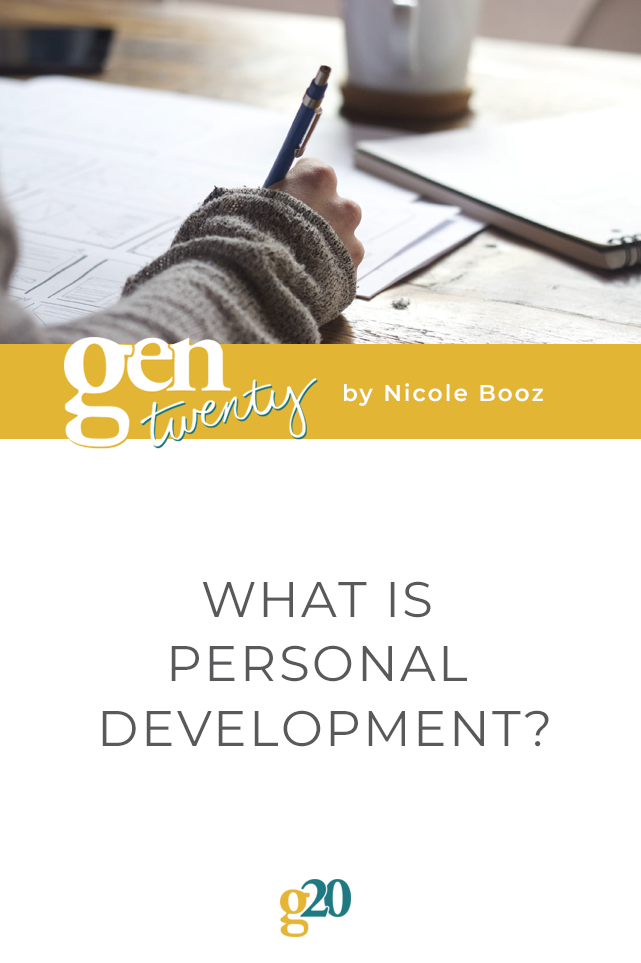
From our very first breath, we are developing in new and wondrous ways. And as children, it comes easily to us. Once we reach adulthood, it can become more difficult. While personal development doesn’t stop, we will have learned that we need to focus more on how exactly we want to develop, and really put our mind to it.
Personal development is just that, improving yourself and developing skills to become the person that you want to be. This generally happens in a step-by-step process using specific goals as a way to measure achievement. It’s a way for each of us to be able to reflect on ourselves and to reach our full potential.
What Is Personal Development?
Why Is Personal Development Important?
Without a target to work towards, life can easily stagnate. While you might have a path in mind, if you don’t actively work towards these goals, they will be harder to realize. Personal development forces us to reflect on every aspect of ourselves and to truly see where there is room for improvement. It showcases our innate talents by providing us with goals that show them in the best light.
When we have a goal, we are motivated to work towards it. Instead of a vague, “I’ll work on that tomorrow”, a good personal development plan provides us with the focus we need to see results.

Seven Aspects of Personal Development
While there are some aspects of social development that don’t fit perfectly into any category, most come under one of seven umbrellas. These are mental, physical, social, emotional, spiritual, practical, and occupational. If you’re just starting to think about your personal development journey, you might not have even considered some of these categories. That’s ok. You don’t need to develop everything all at once. In fact, trying to do so will only make things more difficult.
The most vital thing to remember about personal development of any kind is that it is a journey. Yes, you have a destination in mind, but each step along the way is significant, even if they’re difficult. Goals are important, but reaching them is even better.
We’ve previously covered the five main areas of personal development, and are adding two more points of personal development interest here.
Mental
We never stop learning. Or perhaps it’s more that we never stop having the potential to learn. During our personal development journey, we might learn a lot about ourselves, yet one of the most rewarding things that we can do is to set aside some time for intellectual pursuit.
It could be watching a documentary on Netflix or reading a book that’s always been on your bucket list. It might be taking that training at work that you’ve always put off. Whatever it is, finding time to feed your brain is essential.
Physical
Caring for your physical self is crucial to living a healthy life, which is why one of your development goals should be geared towards this. Yet physical development doesn’t just mean hitting the gym. It is about all physical aspects.
That means getting the right amount of sleep and eating in a way that provides good fuel for your body. It’s about seeing that physio you’ve been putting off for a year, and yes, making sure you exercise regularly.
Social
Social development is at times overlooked, but it is just as important as other areas. Spending time with friends and being “social” may sound like fun, but social development is about so much more than that.
At its core, it’s about good communication. If you’re an introvert, small talk and networking might not come naturally, but it is something you can improve on. You can even take social development a step further and learn a new language!
Emotional
It can be easy to brush off your emotional needs, but this only leads to problems further down the line. Getting in tune with your emotions is an important aspect of personal development.
Whether you talk to a therapist, write in a journal, or practice stress management techniques, understanding your emotions and why you feel the way you do can have a major impact on the rest of your development journey.
Spiritual
Spiritual development can have a religious aspect, but it doesn’t have to. If you follow a religion, connecting to and spending time focusing on this aspect of yourself will enable your spiritual development.
Centrally, it’s all about finding peace, and discovering how best to do this for you personally. Some take a long walk in nature and others meditate, but in our busy world, it’s important that spiritual development isn’t ignored.
Practical
Practical development includes all of that life admin that can build up when your back is turned. Things like making a budget and getting rid of clutter come under this. It might not seem like development but creating a routine that you stick to will take another worry off of your plate and give you time to focus on other things.
Occupational
If you’re working or if you’re looking for a job, occupational development is something that you should consider. Where do you want to be in five years’ time? Are you looking to retrain? Not all of us want to climb the career ladder, but acknowledging this is important, and you can ask yourself how you can improve your current job, or how you want to spend your retirement.

Steps to Take on Your Personal Development Journey
Personal development isn’t easy, but it is necessary. Most people make goals for themselves that aren’t practical or try to change too much at once. The main thing to remember about personal development is that it takes time, and it’s important that you give it this. To help you in your journey, here are six steps that you can follow.
1. Realizing Your Need for Personal Development
Step one of any personal development journey is always realizing that you need it. Part of personal development is the desire to reach self-actualization or “to become everything that (you) are capable of becoming”. While personal development is a journey that can continue for all of your life, and there isn’t really an “end” to it, recognizing that there are aspects that you can improve on will help you to develop a workable plan forward.
2. Ask Yourself Why
Realizing that you need personal development is one thing, but now is the time to really sit down and ask yourself why this is. Is it a single thing you want to work on or multiple? What is your vision of yourself in the future? Visualizing the person that you want to be in a few years’ time, and the achievements you want to have will help you to determine the next step. Do you want to be in the same job? What do you do in your spare time? How often do you exercise? This is also the time to be realistic. You can’t completely transform yourself into a new person so it’s time to also recognize your limits and how you might either work around them or overcome them.
3. Set Yourself Goals
This is one of the foundations of personal development – setting yourself goals. While you can think in vague terms such as “I want to learn Italian”, having that as a goal isn’t going to help you to achieve it.
For this reason, personal development goals need to be SMART. That is, Specific, Measurable, Attainable, Relevant, and Time-based.
For example, your goal could be “I want to be able to speak conversational-level Italian in a year’s time.” Goals aren’t just things you want to do or learn, they can also be things you want not to do or habits that you want to break. Don’t be afraid of long-term goals either. If your aim is to go down a particular route in your job, write it down! Then break this up into more attainable goals that you can achieve in the short term.
4. Get Started – Baby Steps!
This is where it all begins. Now that you have your goals, you can start to work towards them. Sometimes, it’s a good idea to break these down even further, into monthly or even weekly targets for yourself. These are called micro goals. The smaller the step, the more achievable it will seem.
Don’t try and work on too many different goals all at once. Add things to your life gradually. If you are making a change, wait until you are sure that you have formed a habit before adding something else. With personal development, slowly but surely wins the race.
5. Keep a Journal
One of the most important things that you can do while working towards your personal development goals is to keep a record of what you’ve achieved. You’ll have days, and even weeks, where it will feel like you haven’t made any progress. That’s ok. Life happens.
By keeping a journal, you’ll be able to see your progress over a longer period of time, and it allows you to get all of your thought onto the page. In fact, it can be part of your emotional development in and of itself!
6. Self-Reflection – Review Yourself
Reflecting on your journey is crucial, which is why keeping a journal can be a helpful tool. Seeing what has and hasn’t worked for you will enable you to write better goals in the future.
If you haven’t achieved what you wanted to, you can ask yourself why. If you have, you can reflect on the next step, and if achieving your goal has benefited you in the way you expected. Self-reflection is both the beginning and end of any personal development journey.
Personal development can seem daunting, but writing down your goals and allowing yourself the time to focus on them is the best way to achieve what you want in life. Following a plan is always more successful in the long run, and once you start your journey, you’ll never regret it.
